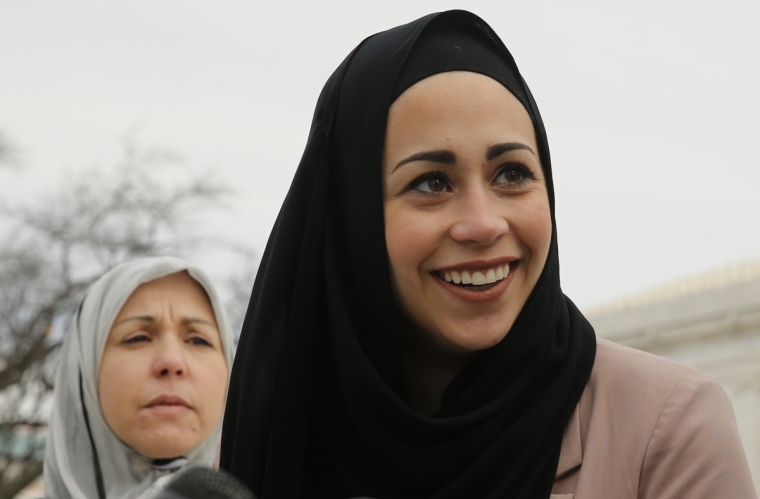SCOTUS rules in favor of Muslim woman denied Abercrombie job over jihab

WASHINGTON (Christian Examiner) – The U.S. Supreme Court today ruled a Muslim woman refused a job at Abercrombie & Fitch in 2008 because she wore a hijab violated the federal Civil Rights Act, which forbids employers to reject an applicant based on their religion.
Samantha Elauf, age 17 at the time, sought to work as a sales associate at the chain's Tulsa, Oklahoma store, according to court documents.
Now age 24, the woman was denied employment not because she requested to work in a hijab, but because at the interview she was wearing the head covering – and was apparently did not meet the requirements of Abercrombie's sales staff "look policy."
"Observance of my faith should not have prevented me from getting a job. I am glad that I stood up for my rights, and happy that the EEOC was there for me and took my complaint to the courts," Elauf said in a statement issued by the EEOC.
In April, Abercrombie said, according to Reuters, it replaced its "look policy" intended to project an East Coast collegiate image, with one "that allows associates to be more individualistic," while also leaving "attractiveness" out of the hiring criteria.
In 2005 Abercrombie paid $40 million to settle a case brought by several thousand minority and female plaintiffs -- for racial and sexual discrimination.
According to Reuters, the U.S. Equal Employment Opportunity Commission (EEOC) has said Muslims, more than any other religious group, file claims alleging discrimination and the failure to provide religious accommodations.
Christians, Jews, and Sikhs have supported Elauf, along with the U.S. Chamber of Commerce and other business groups.